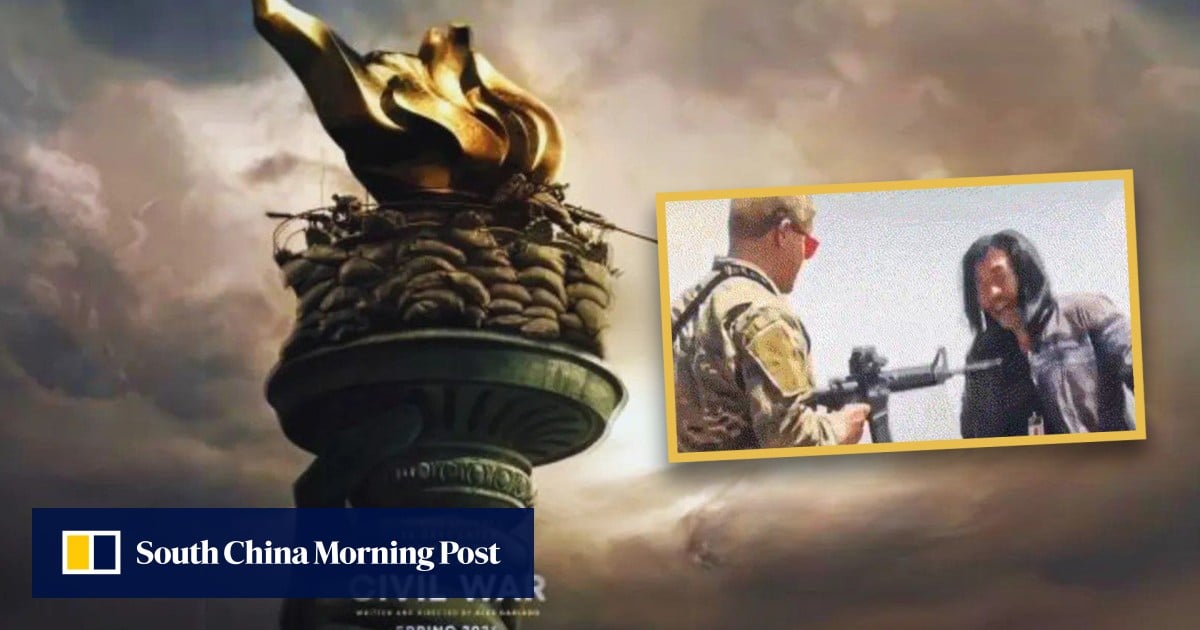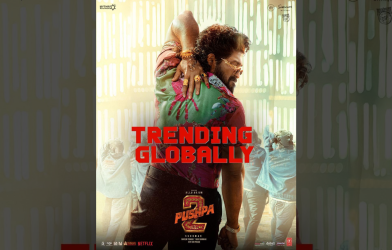The film premiered in the United States on April 12 and despite having a budget of just US$50 million has grossed US$45.7 million in North America alone, with global ticket sales reaching US$67.3 million by April 22.
While it has been well received in the US and globally, scoring 81 per cent on the Rotten Tomatoes website, it has left many Asian audiences, especially Hongkongers, feeling uneasy, particularly due to one poignant scene.

The Rotten Tomatoes website keeps track of all the reviews counted for each film produced and calculates the percentage of positive reviews. If the positive reviews make up 60 per cent or more, the film is considered “fresh”. If the positive reviews are less than that percentage, the film is considered “rotten”.
The poignant scene in question sees US soldiers stop the journalists to question their origins.
While the American journalists pass easily, an Asian male journalist called Tony nervously replies: “I’m from Hong Kong.”
The soldier responds: “Oh, China?” and upon Tony’s confirmation, the soldier nods and pulls the trigger, killing him.
Notably, Tony is portrayed by Nelson Lee, a Taiwanese-Canadian actor, adding another level of irony to the scene.
One Chinese viewer of the movie sarcastically remarked: “A Taiwanese actor playing a Hong Kong journalist, being shot by an American soldier who considered him Chinese. How ironic!”
Despite the movie not being released in mainland China, it has sparked a vigorous discussion on social media.
Some people said the scene reflects a rare moment of political correctness in American cinema in which the views of China and the United States align.
“Thinking negatively, a Chinese person gets shot by an American soldier. Thinking positively, the US acknowledges that Hong Kong is part of China,” said one online observer.
The scene ignited discussion about identity and Hongkongers and the group of so-called gao hua, which literally means “higher Chinese”.

This group includes well-educated individuals who hold high social status, but often downplay their Chinese roots and worship the West after moving overseas.
Some people on social media pointed out that despite these individuals feeling superior to other Chinese groups and strongly embracing foreign cultures, they are still regarded as Chinese by Westerners.
“If this scenario can be depicted in a film, it means that the ideology of many Hong Kong people is typical enough to be disclosed by a drama,” said one online observer.
Another person agreed: “To those who constantly claim to be from Hong Kong, not China, you are nothing else in the eyes of Westerners. They’ll use bullets to adjust your sense of superiority.”
While a third added: “It’s not enough to just hint at issues about Hong Kong. If they had said Taiwan and then ‘bang bang’, the movie’s theme would have been immediately elevated.”









